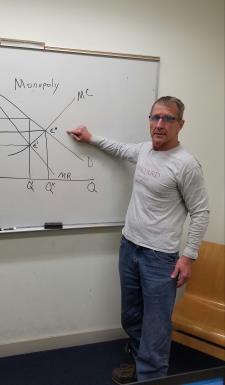
Lenny D. answered • 01/30/20
Global Macroeconomic Expert
I get very agitated whenever I see a question in economics with the word "should" in it. It requires all sorts of normative judgments. But let me tell you a story. Suppose we have a baker, Call him John. if he bakes 3 pies, the government takes two of those pies and gives them to Fred and Barney. They all get one Pie. If the government only took away 1/3 of the pies John Bakes he now bakes 9 pies Fred and Barney now each get 50% more. They are absolutely better off. However, They are complaining that the distribution of Pies is unequal. They can vote for a legislator that will raise the tax and redistribution. as the outnumber john, 2 to 1 they elect that person. John, recognizing that he can't reap the benefits of his labor as much as before only bakes 3 pies. Fred and Barney are Happy with the distribution but can't figure out why they are losing weight.
Typically, People who work more make more. The inequality is a result (in large part) to a difference in effort.
I remember teaching this pricnciple to my twin's. I had a cookie and broke it in half and gave half to each of them. They both complained that the other got "the larger half". So I took both halves and ate them. And then said, "you were right Grady, Paige's piece was bigger!" Now, they tend to be more concerned with the absolute size of the cookie I get than the fraction they receive.
Now from the legislator perspective. If his goals is the have the largest number of Pies (GDP) baked he would not be concerned. If his Job is to get reelected he could either raise the tax to appease Fred and Barney. or try to educated Fred and Barney that they aren't losing weight with John baking 9 pies and keeping.




